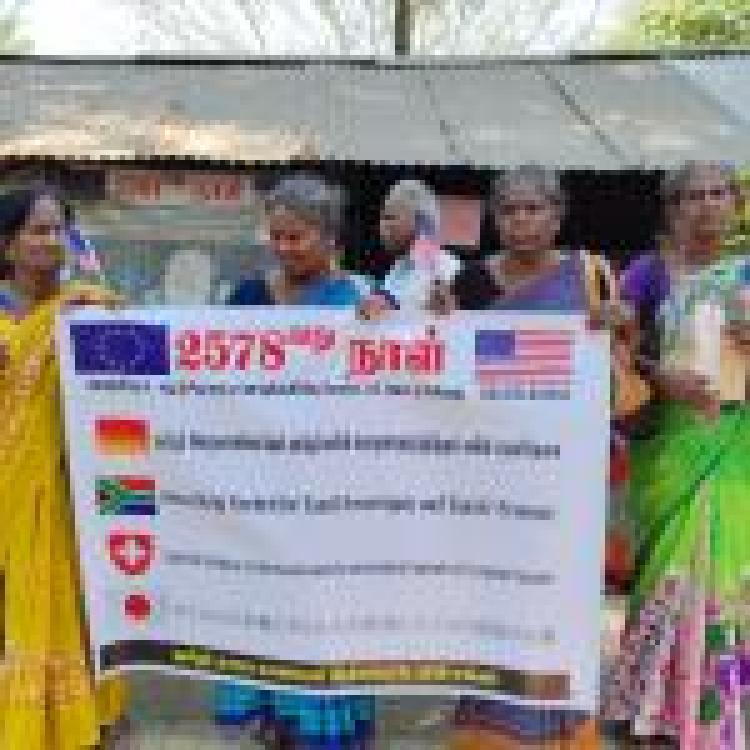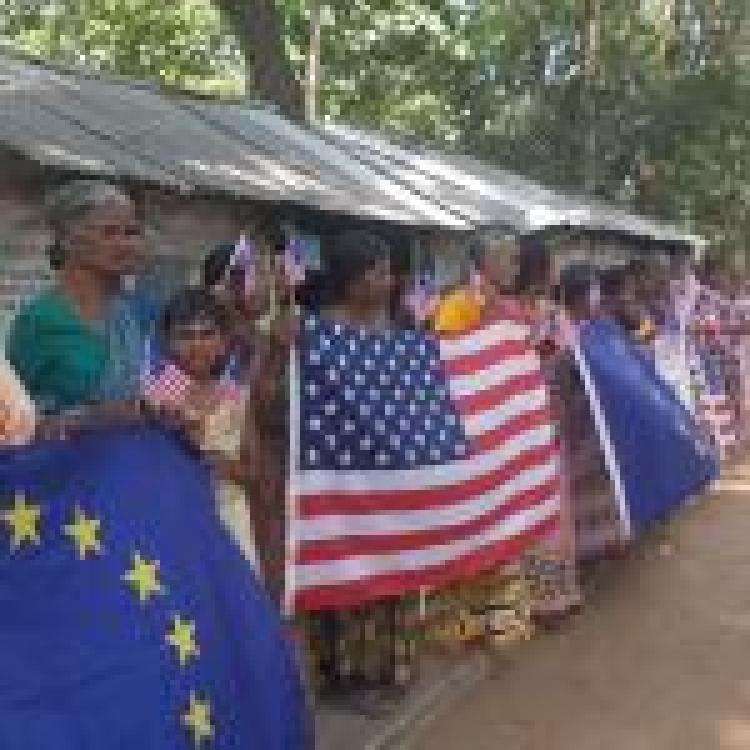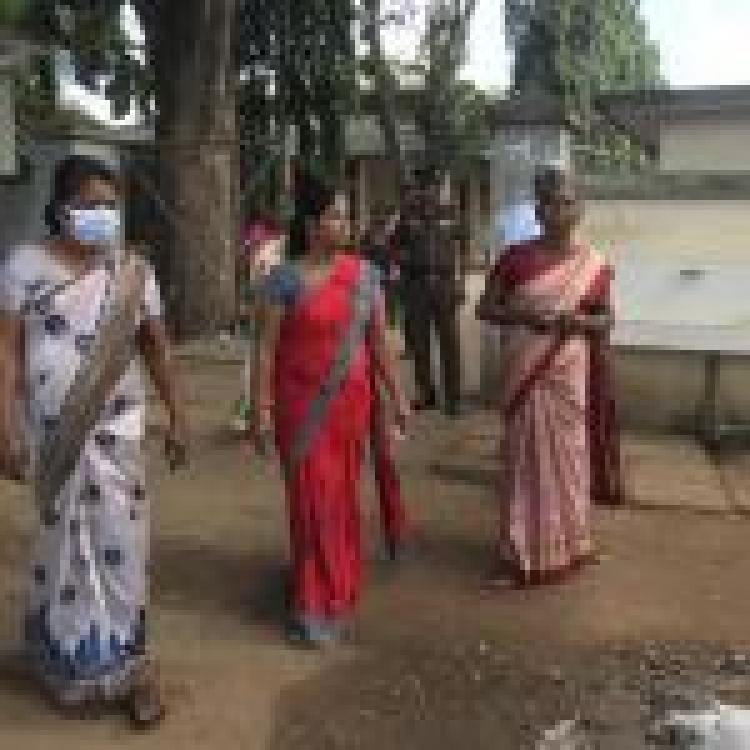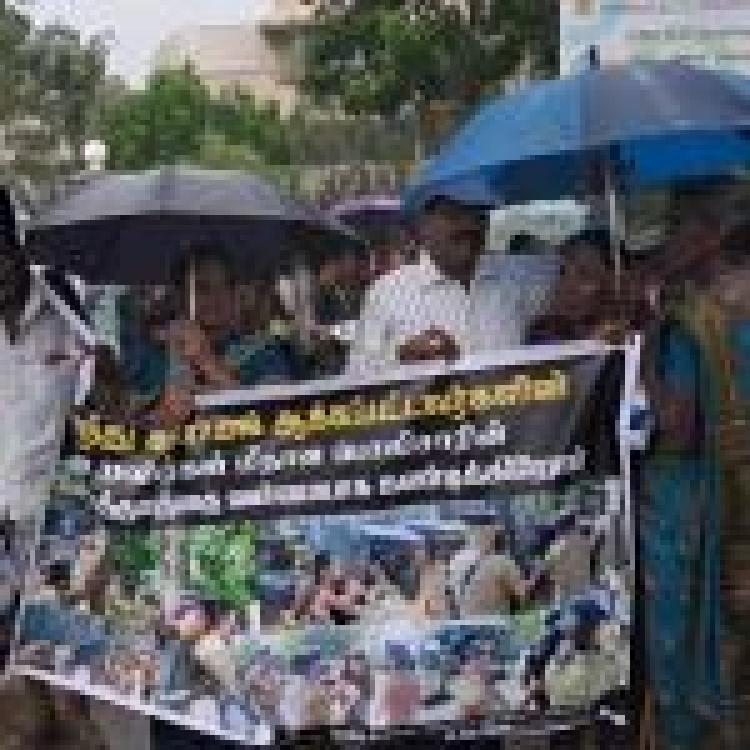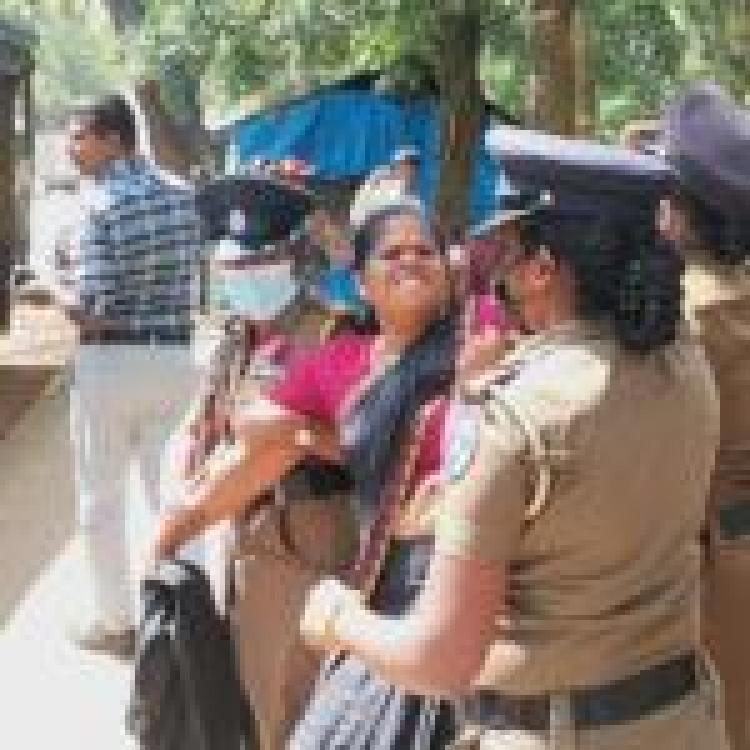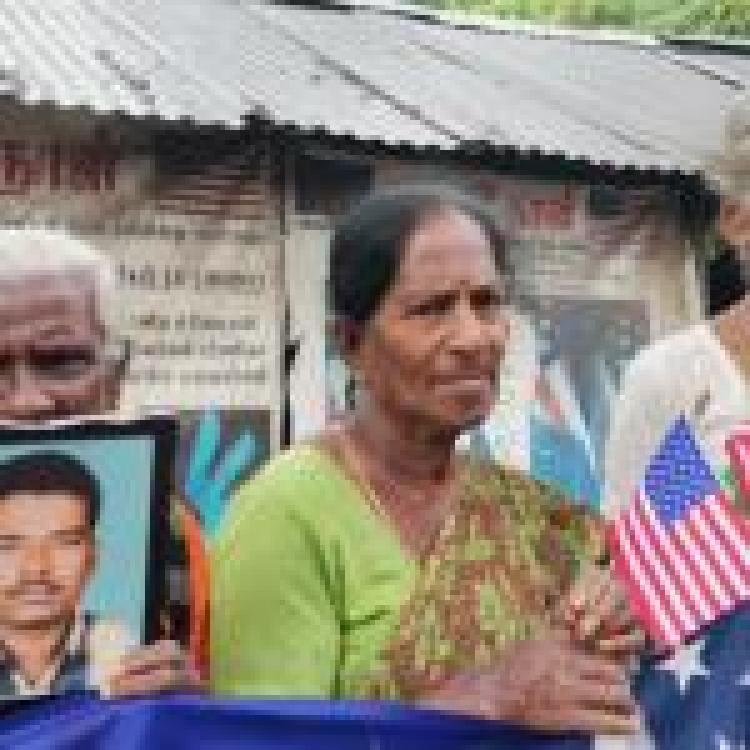.jpg)
Tamil families of the disappeared staged a protest in front of the Vavuniya bus stand, demanding justice and the intervention of the international community. The protest, spearheaded by women, saw impassioned calls for answers regarding the whereabouts of their disappeared loved ones.
"Ranil we don't want your money, we want our children back," read one placard, while another questioned, "How did our children who trusted the army and surrendered, disappear."
Speaking to the media, protestors expressed deep-seated distrust in any truth-seeking mechanisms instituted by Sri Lanka, emphasising the necessity of international intervention to ensure justice. "Many are trying to dilute our struggles and quest for justice," remarked one protestor. "But we ask that the perpetrators be brought to book through an international court. Until then, we will keep fighting."
The protest comes on the heels of Tamil families marking 2578 days of continuous roadside demonstrations earlier this month. These families have been tirelessly seeking answers since the end of the armed conflict in 2009, during which many of their relatives were either taken into Sri Lankan military custody or abducted in white vans.
Gopalakrishnan Rajkumar, the secretary of the Vavuniya Families of the Disappeared association, emphasized the need for a political solution that respects the aspirations of the Tamils and provides safeguards against genocide, oppression, and occupation. He pointed to recent arrests during religious observances as further evidence of attempts to suppress Tamil rights in the homeland.
Earlier this year, Sri Lankan police arrested two women activists from the Vavuniya families of the disappeared as they attempted to protest. Sivananthan Jenita and Meera Jasmine Charlesnise were detained and arrested, highlighting the ongoing obstacles faced by those advocating for accountability.
Despite years of searching for answers, successive Sri Lankan governments have failed to address the fate of the disappeared. Tamil families have consistently rejected domestic mechanisms, citing their failure to meet demands, and instead, they continue to appeal to the international community for an impartial investigation into forced disappearances.
.jpg)
.jpg)
.jpg)

